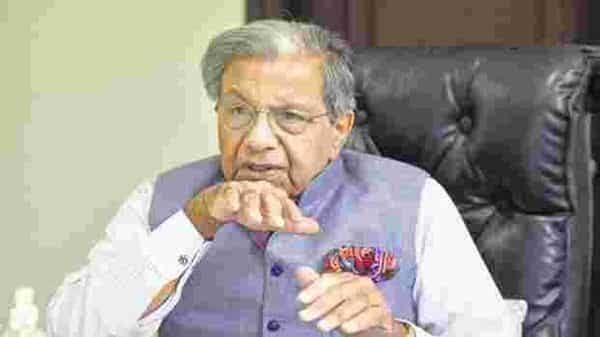New Delhi: For a better undertanding of the contours of India’s Health Sector and in view of the Union Government’s need and intention for reprioritization of its health spending, the 15th Finance commission held a detailed meeting with representatives of the World Bank, Niti Aayog and member of the Commission’s High level group (HLG) on the health sector.
The Chairman XVFC Shri N.K Singh and all members and senior officals of the Commission were present at the meeting. The World Bank was represented by Dr. Junaid Ahmad, Country Director, Mr. Muhammad Ali Pate, Global Director, and other senior officials. Dr. Randeep Guleria, Director, AIIMS, Dr VK Paul, Member Niti Aayog, Dr Indu Bhushan, CEO, Ayushman Bharat also took part in the meeting.
The meeting started off with Dr. Junaid Ahmad stating that World Bank has been engaged in India’s health sector for long time. Recently, in context of the pandemic, a billion-dollar loan has been given by World Bank to the Government of India. It has been engaged in helping State governments to strengthen service delivery through district hospitals. World Bank has recently successfully concluded a 20 year long partnership with Government of India in the area of HIV.
He stated that States in India are going to be the anchor in implementation of health programs. As States are so different from each other, the solutions for them will be custom made. Health, he said, was not just a social expenditure but also important for economic growth and development of the country. In this regard, he felt that the Finance Commission may like to look at health in three different ways: grants to enhance per capita spending, block grant for capacity building and a performance incentives for certain health outcomes.
Similarly, in context of health a pivotal role may be played by local bodies. Also, more than 60% of health demand in India is supplied by private sector. Leveraging private clinics along with DBT may be used as tools to increase engagement with private sector. Importance of non-communicable disease can’t be undermined. Another area that needs focus is infectious disease programs like tuberculosis.
Dr. Junaid Ahmad also stressed on the importance of engagement with Centrally Sponsored schemes with Government of India for implementation of these programs. He cited the example where World Bank had engaged in implementation of Samgra Shiksha Abhiyan with five States of India.
Similarly, in health sector, institutions like district hospitals, primary health centres, private providers, municipalities, social sector system may be leveraged carefully. World Bank, he suggested, could play a role in designing and implementation of such programs while working closely with such institutions. Government’s programs needed to be converged with Finance Commission recommendations along with efforts of World Bank towards a common goal, he said.


Comments are closed.